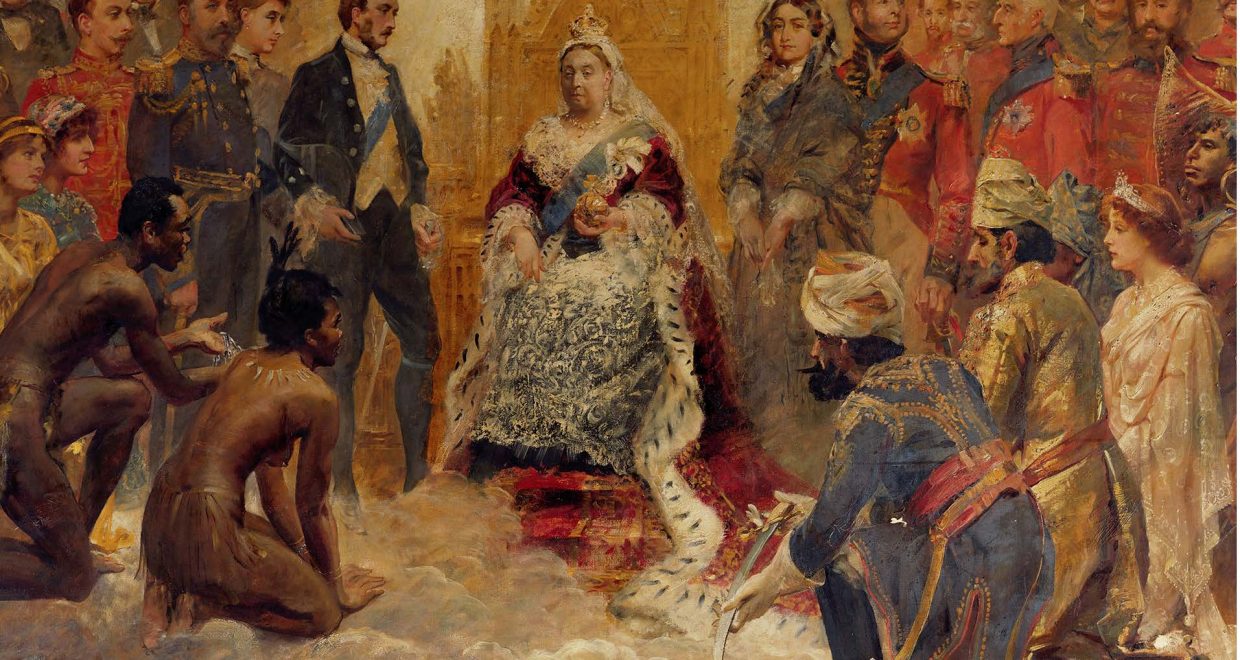Challenging International Relations (IR) at its “Centenary”
In 2007 we published a forum in International Relations of the Asia-Pacific on ‘Why Is There No Non-Western IR theory?’. There, and in a subsequent edited book (Non-Western International Relations Theory: Perspectives on and Beyond Asia, 2010), we posed it as a challenge to IR scholars to get their voices and their histories into the global debates on how to think about IR, both for their sakes, and as a necessity for the balanced development of the discipline. These projects discussed the reasons for the absence of a Non-Western IR or Global IR. Briefly, these range from the first-mover advantage of Western scholars, through the extensive training of Asian (and more generally Non-Western) scholars in the United States, and the hegemonic status of Western scholars, publications and institutions in IR, to a widespread belief that Western IR has discovered the right path to understanding IR, or the right answers to the puzzles and problems of the day, a serious lack of institutional resources, and the problem of English as IR’s hegemonic language. There is also the issue of an uncritical acceptance of Western theory, a lack of confidence to take on Western theorists, blind deference to scholars from prestigious Western institutions, and too much political and policy engagement for IR scholars in universities in the Global South.
The label ‘Non-Western IR theory’ served a crucial purpose in generating debate that drew a good deal of attention to the parochialism of IR. One of the criticisms was that globalization and income convergence make the categories West and Non-West, and the distinction between core and periphery, less and less meaningful, especially in an era of rising powers such as China and India. As the earlier chapters in our book show, there has been erosion of the almost total differentiation and separation of core and periphery that existed in the 19th century, and there are growing cross-overs and mergers between them in the 21st. Yet, the term West remains politically and culturally useful to both the rising powers in defining their identity, and to the Western nations (in dealing not only with non-Europeans, but also, as seen in the Ukraine crisis, with Russia and Eastern European societies).
Our new book is a development from this earlier work. When we started thinking about this project the centenary (at least according to IR’s founding myth) of 2019 was on the horizon, and seemed an obvious target for the next stage of our project. Our individual work during the last decade was strikingly parallel in outlook, so we had firm foundations on which to build. Both of us have been committed to developing global and world historical perspectives on IR, and both have acquired a deepened awareness and understanding of the problem of West-centrism in IR
But while the idea of Global IR is an extension of our notion of Non-Western IR, it goes beyond it for both normative and instrumental reasons. The project of making IR inclusive cannot be a conversation among the likeminded, whether from IR’s mainstream, or from its Critical and Postcolonial alternatives. We reject the idea of a zero-sum choice between mainstream IR and its critical and cultural challengers. All sides have a lot to offer, and none has a monopoly on truth or insight. A real world structured by deep pluralism needs a Global IR that reflects and understands that structure, both in terms of the history that created it, and in terms of the political legacies from that history that continue to shape world politics. Exposing the interplay between the theory (IR) and practice (ir), and how things have moved from extreme differentiation of core and periphery towards increasing integration between them is why we structured this book as we did. As of the time of writing, the component parts of a Global IR are coming more clearly into view, and the task is to bring them together.
Talking points of the book:
1. Imperialism and racist geopolitics, rather than altruism and universalism were principal forces behind the birth of the discipline, and have been ignored in the “foundational myth” of IR. Initially, IR was only about relations among “civilized’ states, with colonial relations thought of as a separate subject.
2. IR was not ‘born’ in UK and ‘raised’ in US, but has had multiple points of origin worldwide: A few examples:
- Pan-nationalist ideas, such as pan-Africanism (e.g., Du Bois, C.L.R. James), and those in the Arab and Islamic worlds (Jamal al-Afghani) as well as Asia;
- Latin America’s contribution to regionalist IR and the theory of underdevelopment (Victor Haya and Jose Mariategui) well before the emergence of Dependency theory;
- Japanese thinking on nationalism, realism and socialism
- Indian scholar Benoy Sarkar’s writings on international relations theory drawing on Hindu tradition and Rabindranath Tagore’s critique of nationalism and his staunch advocacy of internationalism and globalism;
- Chinese thinking like that of Liang Qichao on Confucian modernity; and Sun Yat-sen’s perspective on Asianism and international development.
3. There is a significant correlation between the changing “reality” of world politics and the discipline of IR. Theory often reflects the changing nature and structure of power, ideas and resistance. The emergence of IR (according to its foundational myth) was due to dominance of Europe, and the metaphor of “American social science” reflected US global dominance after 1945. The emergence of resistance movements, including anti-colonialism and sentiments against US/Western dominance and feminist protests against the marginalization and oppression of women directly inspired Dependency, postcolonialism, critical theories and feminism.
4. Many leading theorists of IR ignored the non-West, either because they did not draw from non-West (Keohane), or because they mistakenly believed that their theories could well apply to the non-West. As a result, they not only suffered from ethnocentrism but also were proven wrong as their expectations and predictions did not work out. Some examples:
- Waltz’s notion of the stability of a bipolar world, Gaddis’ Cold War as “long peace”, and Democratic Peace theory all side-line conflicts in the Global South.
- The projection by regional integration theories drawn from Western Europe as a universal model of regionalism, which has proven to be mistaken.
- Constructivism’s norm diffusion theory which cast Western ideas as superior and universal that would prevail in the periphery and Western agents and institutions as “teachers” with the rest of the world passive pupils.critical theories helped to challenge and open up IR, but did not go far enough. To a large extent, they drew from European philosophy and ignored the legacy of colonialism. This has led to tensions between
5. Critical theories helped to challenge and open up IR, but did not go far enough. To a large extent, they drew from European philosophy and ignored the legacy of colonialism. This has led to tensions between Post-modern and post-colonial perspectives, between Western liberal feminists and feminists from the Global South and between Dependency theory and Postcolonialism, which sees the former as not being interested in culture and identity. At the same time, Postcolonialism remained preoccupied with critique and less interested in developing a concept of agency.
6. The nature of world politics and order is changing. While aspects of the old order or international society remain, we are moving towards a post-Western world of “deep pluralism”: a decentered, world order in which not only wealth and power, but also cultural authority, are becoming more diffused. In this order, Western dominance will substantially fade, but there will be no return to either pre-World War II type multipolarity, or global hegemony by a single power or select group of Great Powers. The very idea of global hegemony by anyone is becoming illegitimate. Instead, a variety of actors and ideas will interact both competitively and cooperatively at different levels, global, regional and local.
7. In this world, while US dominance of IR is not going to be replaced anytime soon, thanks mainly to institutional factors such as journals and universities that train IR scholars, rather than global respect or relevance of American ideas, there are very interesting counter-currents from international, regional and national platforms. Some of these reflect regional developments in IR around the world (including China, India, Africa, Latin America and Europe). We believe these, instead of fragmenting the field as feared by many mainstream scholars, will challenge IR scholars and create the longer-term basis of a more global discipline.
In sum, Global IR challenges the discipline of International Relations to recognize its multiple and global foundations, and give due space to the ideas, voices, and practices of societies and actors that have been neglected or marginalized in the IR literature. But it is unlikely to succeed if it does not draw in the broadest group of scholars, including both critics and those in the Western mainstream. The problem is how to both invent a Global IR and still engage with those schooled in the existing IR traditions in a meaningful two-way dialogue. The ultimate aim of Global IR is to bridge the distinction between West and Non-West – or any similar binary and mutually exclusive categories.
Amitav Acharya is Professor of International Relations at the School of International Service, American University, Washington, DC, He also holds the UNESCO Chair in Transnational Challenges and Governance since 2011.
Barry Buzan is Emeritus Professor of International Relations at the LSE; honorary professor at Copenhagen, Jilin, and China Foreign Affairs Universities; a Senior Fellow at LSE Ideas; and a Fellow of the British Academy.
The Making of Global International Relations: Origins and Evolution of IR at its Centenary is available now.






